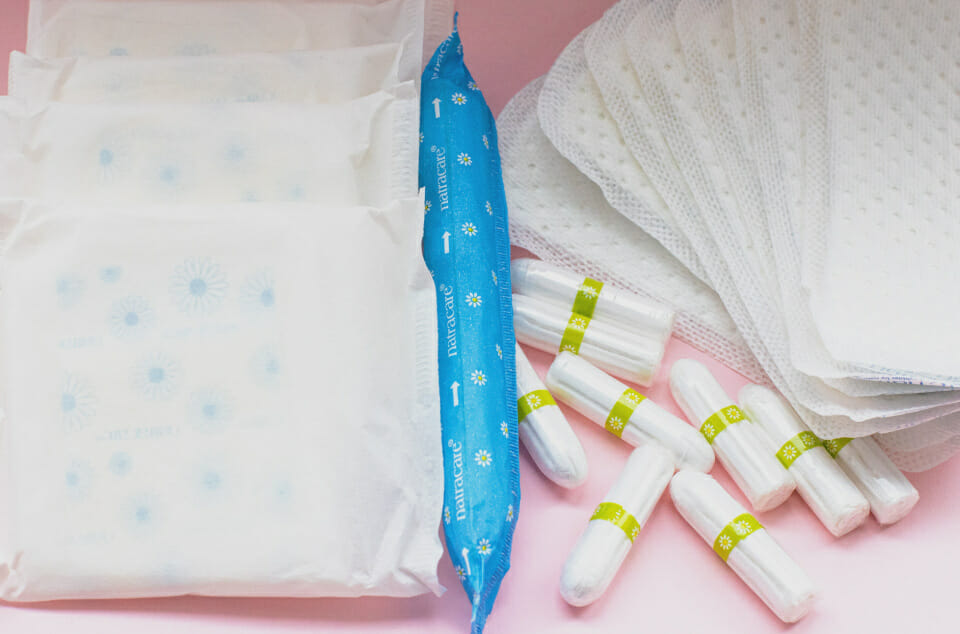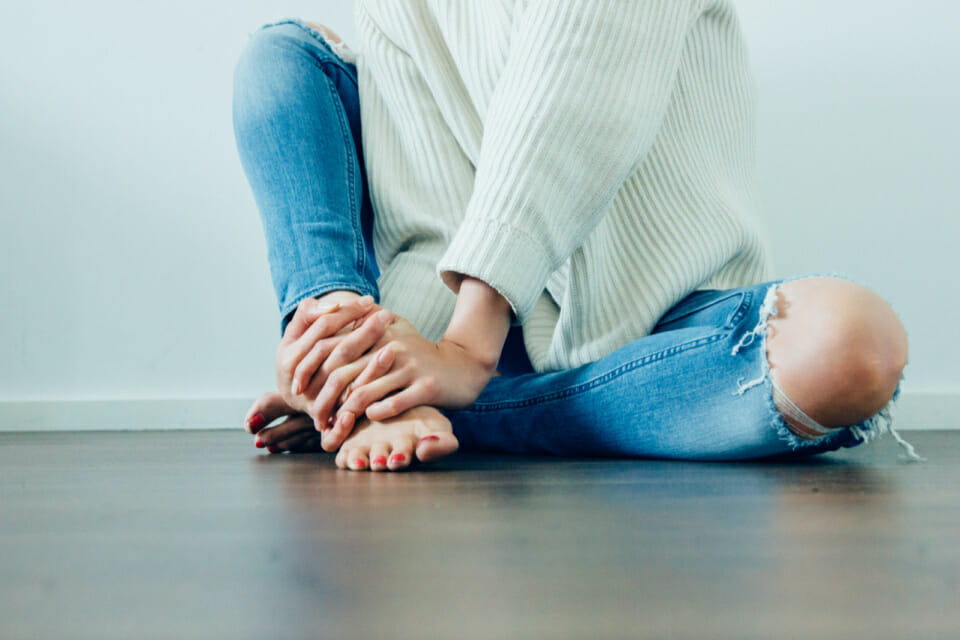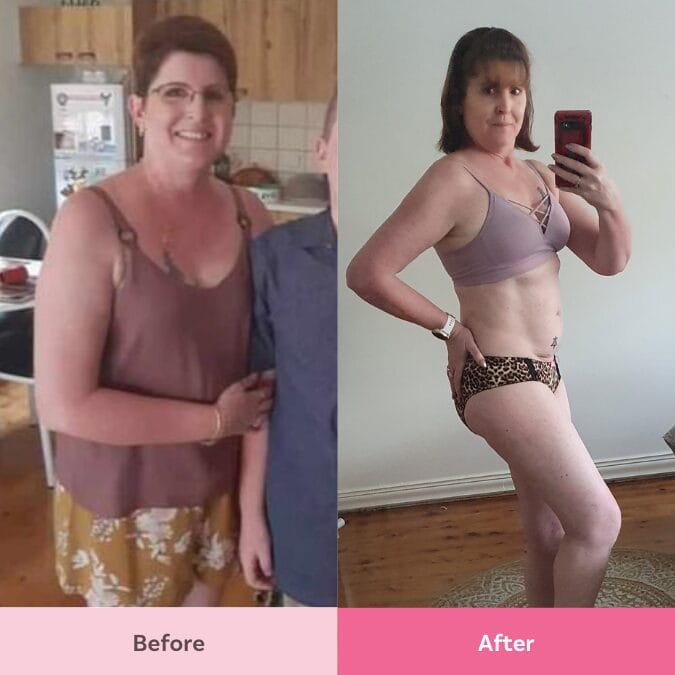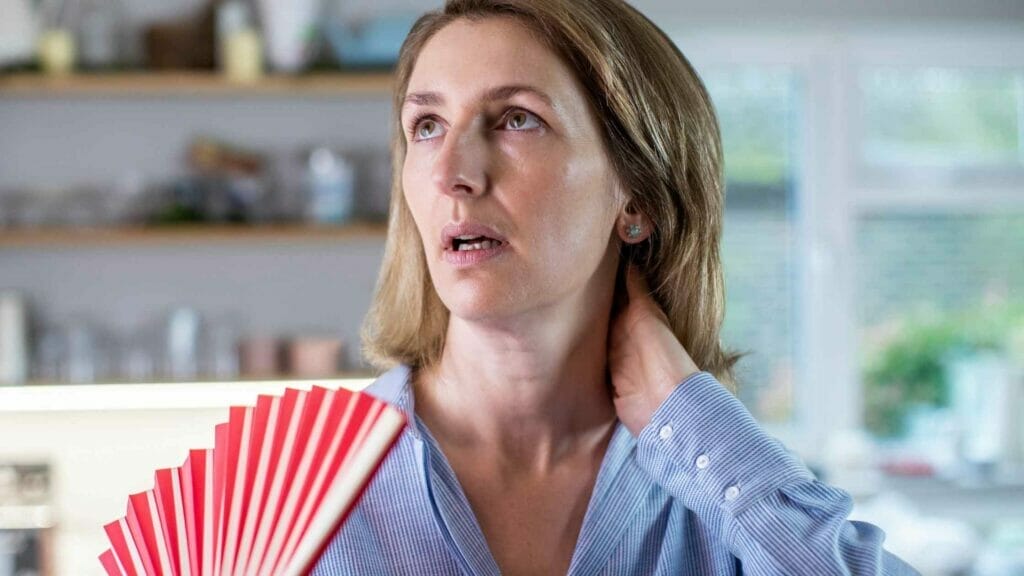How to reduce the fluctuations in your mood before your period
A healthy period should be one that simply comes and goes without PMS and without associated severe symptoms like pain and mood swings.
Whether it’s PMS symptoms or just the general fluctuations of mood and hormones during menstruation there are ways to help manage your mood. This is certainly a good topic for not only us mums but for those amongst us with teens in our lives.
Some handy info that we wish we had way back when! We can help set them up for a happier and healthier menstrual life.
After all, a healthy period should be one that simply comes and goes without PMS and without associated severe symptoms like pain and mood swings.
Wellness expert and Naturopath Sarah McLachlan discusses this issue on our Wellness app, but here’s also a bit on what she has to say on the topic…
So, why are emotions at play when it comes to our cycle?

We have compounds in our bodies called neurotransmitters, and they are brain chemicals used by our brain and nervous system to regulate processes such as mood, appetite and sleep. Some of the ones that people may recognise are serotonin, dopamine and GABA.
These neurotransmitters are intimately linked with our reproductive hormones – the main ones being oestrogen and progesterone.
Through our cycle, we have normal fluctuations of oestrogen and progesterone. As we get towards the end of our cycle in what we call the luteal phase – if the egg is not fertilised, then the oestrogen and progesterone levels will naturally drop or decrease to signal the end of the fertile cycle and having your period.
How chemicals in the brain work during your period

Serotonin and dopamine levels will drop simultaneously, so if we have an imbalance of oestrogen to progesterone or oestrogen is very high, the greater the fall. So when these hormone levels are higher the more pronounced your PMS symptoms and mood changes can be.
Progesterone is there to act as a buffer as our natural nervous system tonic, being that it is calming, soothing and helps us sleep.
So we need enough progesterone when our oestrogen is dropping, so it simply tapers off gently.
There may be times when you are not ovulating due to weight loss; similarly, some athletes lose their periods. During this time, you’ll not have enough progesterone, and you may notice anxiety at some level.
Serotonin – which we call an inhibitory neurotransmitter, helps us regulate our mood, our appetite and our sleep and plays a role in depression and anxiety. Serotonin is our long-term happiness molecule, and dopamine is more a short-term one.
So with progesterone and serotonin levels changing in the lead-up to your period, people will really notice the impact on their sleep. This is due to the impact of hormones on neurotransmitters.
It’s amazing how interconnected everything is; if one thing is out of balance, it has a knock-on effect throughout the body. Making lifestyle changes will not only help you’re overall health but will also impact premenstrual syndrome if done with your menstrual cycle in mind.
PMS is the change 7-10 days before your period

A big thing to note is that PMS is the change 7-10 days before your period and for that time only. If those symptoms exist for your full cycle but just get a bit worse in the lead-up to your period, then it’s likely a different underlying issue and not PMS.
A drop in oestrogen could mean you feel fatigued or have headaches or migraines, you may feel depressed or low in mood or motivation or an increase in anxiety. These hormone changes through premenstrual syndrome often also come with bloating, mood swings, breast tenderness and other emotional symptoms and physical symptoms.
There is a natural change in the way we feel in that phase, and we tend to become more inwardly focused or naturally want to rest at the start of your period. Understanding how your hormone levels affect your daily life throughout your cycle is important.
We do live in a world designed for men, especially in the workplace, and our female bodies do work differently because our hormonal changes fluctuate. If we understand our menstrual cycle, we can work with it and schedule around it.
Do more in your first half of the `cycle when you are perhaps more productive and have more energy. When the symptoms of PMS are lower make use of your daily activities to increase your wellness.
The second half may be a slower pace or less social, working more inwardly and quietly. During this period you’ll likely feel hormonal changes and symptoms of PMS so go easy with yourself and focus your daily life on rest.
Honouring your cycle through the month will help reduce PMS and fluctuation in your mood during the time before your period. This is because it supports your mental health and reduces stress levels that impact hormones and can cause moodiness.
We don’t need to solider on until we reach complete burnout. We need to listen and work with our body’s natural rhythm.
There’s no shame in this! It shouldn’t be seen as a weakness. It’s, in fact, a superpower if we can just harness our natural energies at the right time.
It’s working with ourselves rather than against. In terms of reducing fluctuations before your period, the one thing we all fight as serotonin levels drop is food cravings. You need to look at stabilising or balancing your blood sugar levels, particularly in that week before your period.
It’s important not to skip meals

It’s important not to skip meals, especially not breakfast. You need a well-balanced brekky with healthy fats, protein, fibre and some slow-release carbohydrates.
Think about avoiding sneaky sugars that come with flavoured yoghurts, shakes and even homemade smoothies.
If you have some food cravings like chocolate, have some chocolate but switch to 70% cacao dark chocolate and have it in moderation.
Choose a good quality one without additives, preservatives or excess sugar. Or better still, make a hot chocolate with cacao and nut milk instead. One of the reasons we crave chocolate is that cacao has some dopamine-boosting compounds in there, so it can have some nutritional benefits if you tackle it respectively.
It’s always good to support dopamine and serotonin production with the foods you are consuming.
Slow-release carbohydrates such as potato with the skin on, whole grains, avocados, bananas, raw cacao, blueberries, pomegranate, pineapple, kiwi, seeds and nuts – in particular walnuts are all great options.
Ensure you’re getting all the relevant dietary vitamins and minerals or speak to your health care provider about any supplements you could use to boost these. Some of the vitamins you’ll want to get are calcium, vitamin b6, magnesium, whole grains, carbohydrates and more. If you need to get calcium supplements or any other type of supplements ensure you speak to your health care provider.
Yummy, satisfying foods enhance your health and fight against severe PMS! And the bigger picture is, of course, supporting our hormonal health and balance in our gut and liver, which aid in hormone production and elimination.
For more Functional Food Recipes AND access to the full podcast, download the Wellness App

The Healthy Mummy Wellness app is built to support mums’ mental, physical and social well-being. We have expert advice to help mums makeover their minds, transform their mood, manage their hormones, sleep better and engage with their family. You can listen to podcasts, read blogs, work out with our trainers and find healthy, family-friendly recipes from the palm of your hand.









